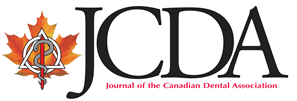Use of Problem-Based Learning in Canadian and U.S. Dental Schools: Results of a Survey
FULL TEXT
A b s t r a c t
Problem-based learning (PBL) is an increasingly common pedagogical method in health sciences education. Medicine has led the way, but many health science educators in other disciplines have begun to use PBL or are looking seriously at introducing it. There is far less information available about the extent and the scope of PBL in dental education than in medical education. The International Dental Problem-Based Learning Network (IDPBLN) is an informal group of dental educators interested in or involved with PBL. Representatives of the Network surveyed the deans of 10 Canadian and 55 U.S. dental schools to determine the extent of PBL in dental education. The survey included a clear definition of PBL to help ensure that the term was interpreted the same way by all respondents. The deans were asked if PBL was already used in the curriculum or if they intended to begin using it. For institutions where PBL was already in place, respondents were asked about the extent to which PBL was used in the curriculum. A total of 49 institutions responded to the survey (9 Canadian and 40 U.S.). Twenty-two institutions reported that PBL was being used, and 6 of the remaining 27 indicated that they planned to use PBL in the future. For the most part, PBL was used only in certain parts of the curricula, most commonly during the early years.
MeSH Key Words: education, dental; problem-based learning; schools, dental
Reply to this article | View replies [0]
|

